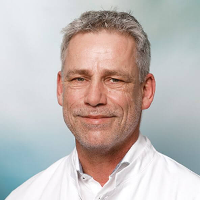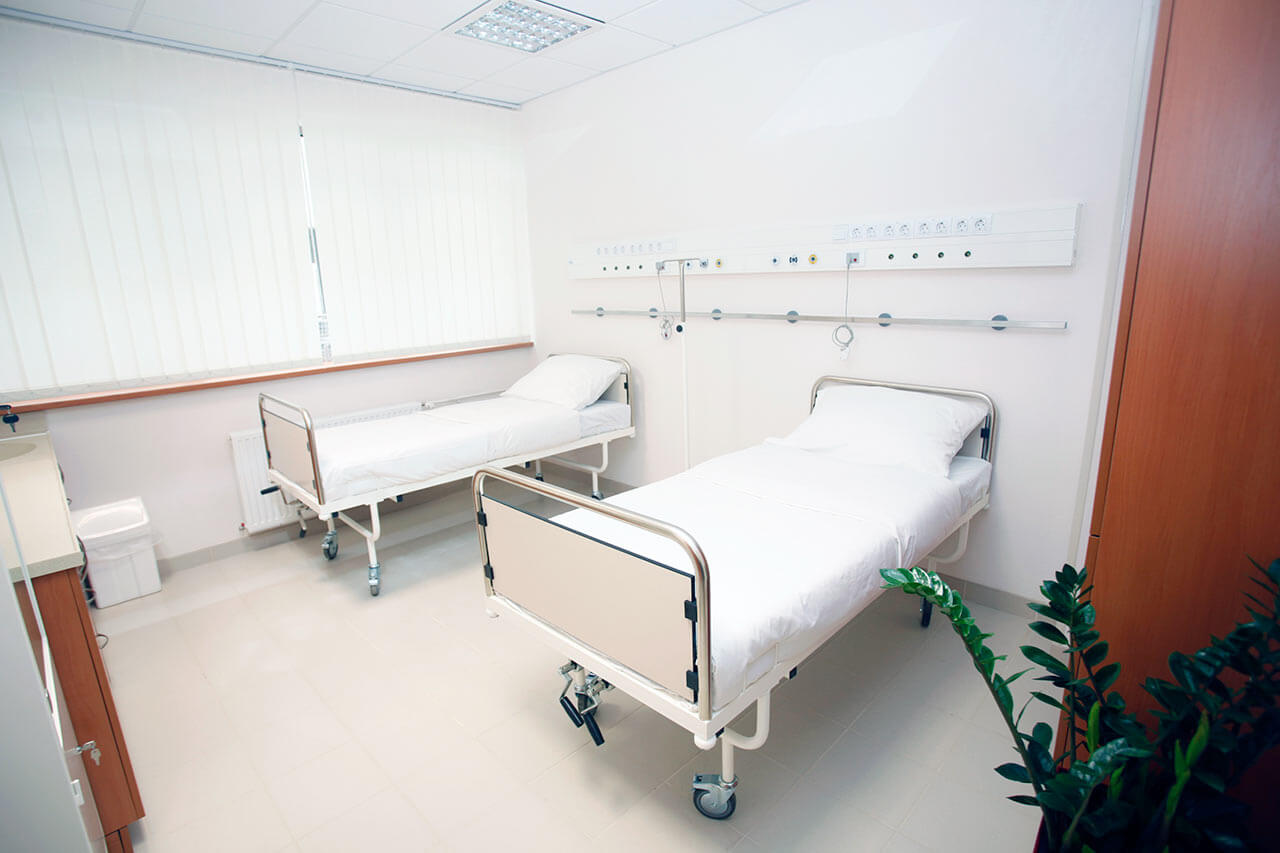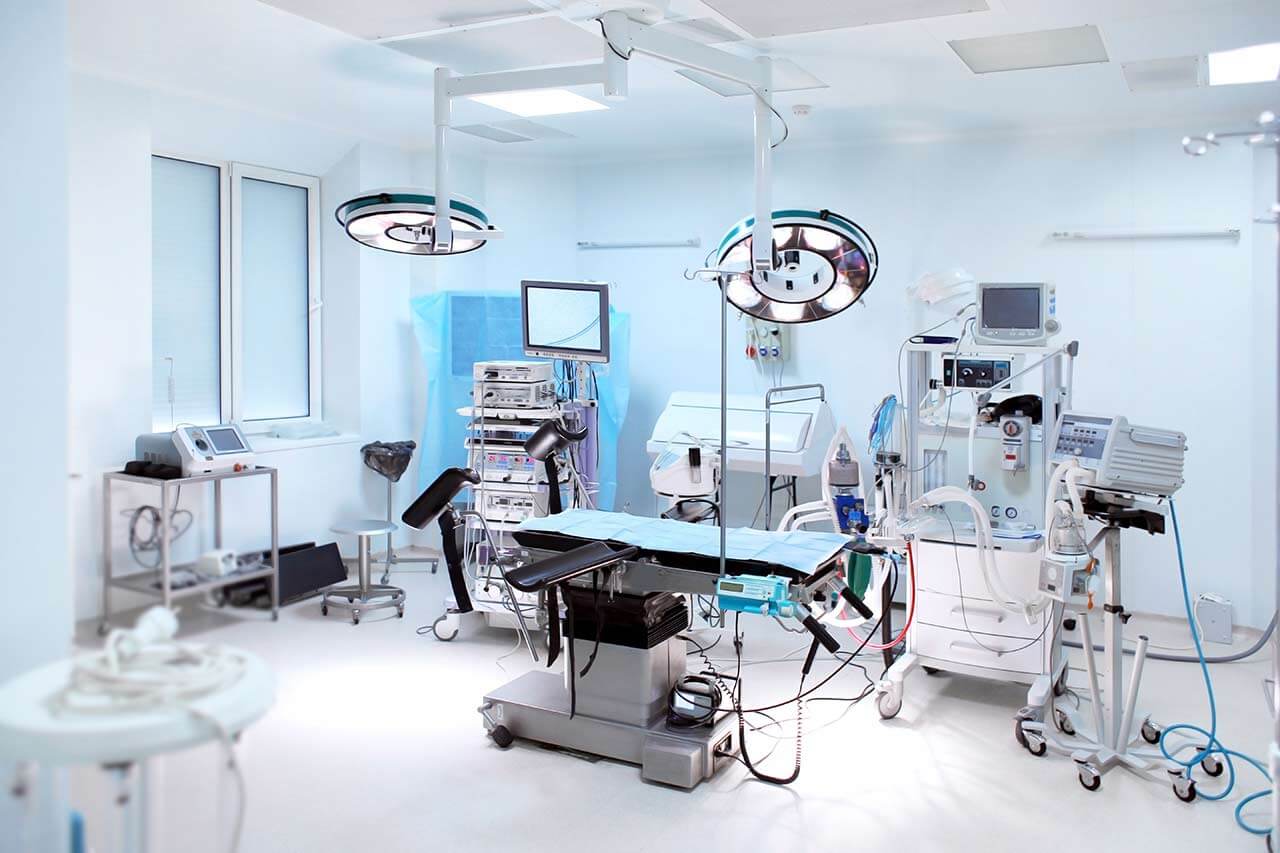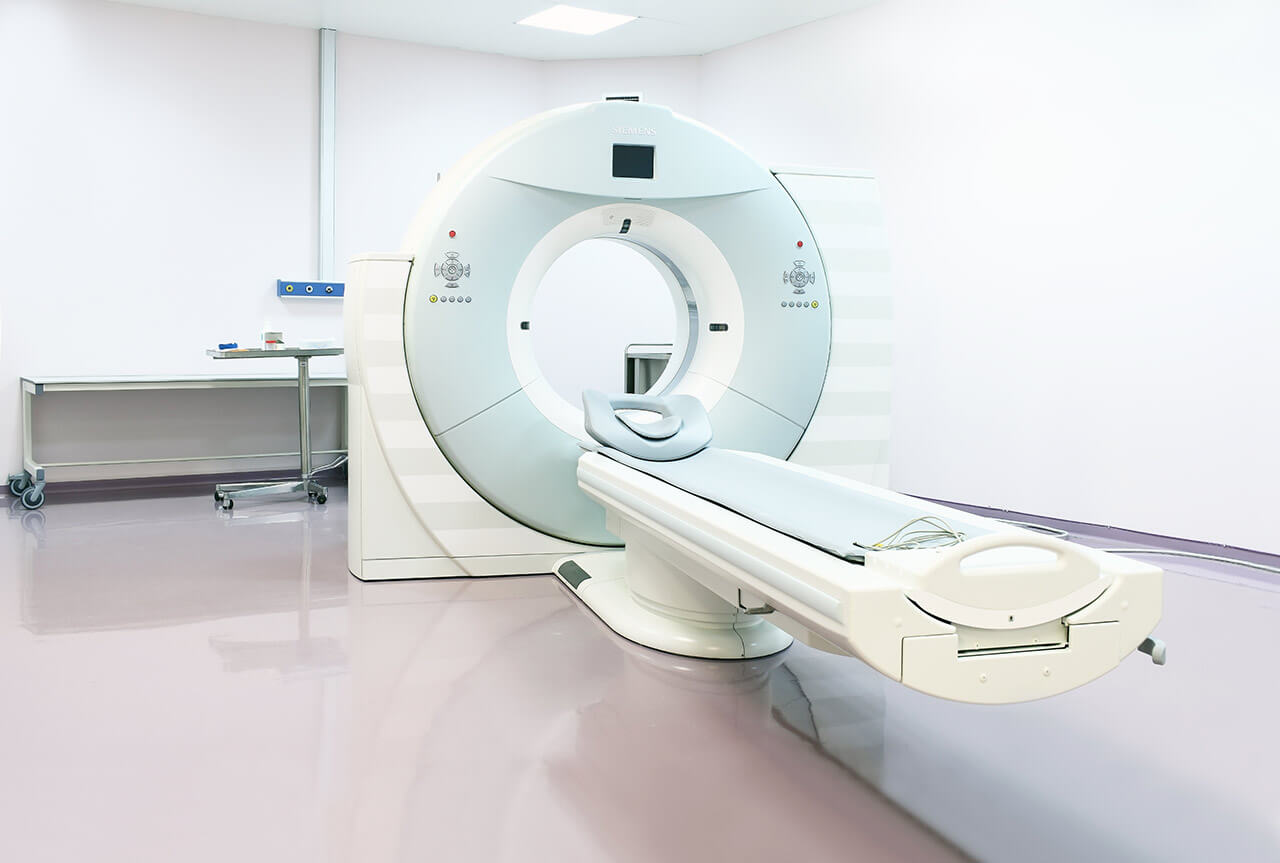
The program includes:
- Initial presentation in the clinic
- clinical history taking
- review of medical records
- physical examination
- laboratory tests:
- complete blood count
- biochemical blood analysis
- inflammation indicators (CRP, ESR)
- alpha-1-antitrypsin
- x-ray and bronchography
- electrocardiogram (ECG)
- high-resolution computed tomography (HRCT)
- collected three sputum samples
- pulmonary function test
- blood gas analysis
- bronchoscopy with biopsy
- histological and microbiological examination
- bronchial lavage
- nursing services
- development of individual treatment plan
Required documents
- Medical records
- Chest X-ray, MRI/CT scan (if available)
Service
You may also book:
 BookingHealth Price from:
BookingHealth Price from:
About the department
The Department of Pulmonology at the Asklepios Hospital Barmbek Hamburg provides the full range of diagnostics and treatment for diseases of the respiratory system. The long clinical experience of doctors allows them to treat patients with diseases of any severity, ranging from bronchial asthma, chronic obstructive pulmonary disease, pulmonary fibrosis, and pneumonia to lung and pleural tumors. Of particular interest to the department's specialists are interventional endoscopic procedures, both diagnostic and therapeutic. The department also has all the necessary resources for mechanical ventilation and intensive care for patients with lung diseases and other pathologies of the internal organs. The department houses a specialized Weaning Center. The medical team of the center is proud of its outstanding results: complete weaning occurs in approximately 80% of patients, and only 15% of patients require respiratory support at home after their hospital stay. The health of patients is in the safe hands of a highly qualified team consisting of pulmonologists, intensive care specialists, and pulmonary rehabilitation specialists. Doctors strictly adhere to current clinical protocols and give priority to the most sparing treatment. Hence, they primarily consider options such as drug therapy, oxygen therapy, respiratory exercises, etc. Endoscopic procedures on the organs of the respiratory system are performed in compliance with hygiene and safety standards. Pain management can also be provided if required. The department is headed by Prof. Dr. med. Ralf Eberhardt.
The department's pulmonologists have vast experience in the treatment of chronic obstructive pulmonary disease (COPD). This pathology limits the airflow into the respiratory tract, and the patient develops shortness of breath. Chronic obstructive pulmonary disease is often impossible to cure completely, so the initial goal of therapy is to slow its progression, alleviate symptoms, and improve the patient's quality of life. This is achieved through drug therapy. In addition, patients should change their lifestyles by quitting smoking, adhering to a proper diet, performing physiotherapeutic breathing exercises, etc. As the disease progresses, treatment commonly involves long-acting sprays and, in some cases, anti-inflammatory drugs. In cases of severe COPD, doctors prescribe long-term oxygen therapy and non-invasive ventilation. COPD also often causes pulmonary emphysema, a persistent expansion of the alveolar walls with their subsequent destruction. In such cases, the department's pulmonologists successfully perform endoscopic lung volume reduction (ELVR).
The department also offers various therapeutic options for the treatment of acute and chronic respiratory failure. Acute respiratory failure causes severe shortness of breath, cyanosis (blue skin), and confusion. In cases of lung dysfunction, the body does not receive enough oxygen, so acute respiratory failure always threatens the patient's life. The causes of acute respiratory failure include bronchial asthma or COPD exacerbation, pneumonia, pulmonary embolism, or acute coronary syndrome. Chronic respiratory failure usually occurs due to advanced COPD, pulmonary emphysema, and pulmonary fibrosis. Spinal curvature or morbid obesity may also cause this pathological condition. Eliminating the cause of the pathological condition plays a decisive role in providing care to patients with respiratory failure. During the first critical days, the patient breathes through a mask, and then, depending on the symptoms, effective drugs are prescribed. In more severe cases, long-term oxygen therapy may be required.
Special attention in the department's clinical practice is paid to the treatment of malignant lung tumors. Lung cancer is among the most common and life-threatening types of oncology worldwide. In cooperation with the Department of Thoracic Surgery, patients are offered a variety of surgical interventions, which are often combined with chemotherapy and radiation therapy (before and after surgery). In cases where the tumor spreads metastases, the chances of recovery decrease, so the goal of treatment is to curb the disease and improve the quality of life for patients. In this case, therapy helps relieve pain and other symptoms such as general weakness, shortness of breath, or loss of appetite. Psychological counseling is an integral part of the therapy, which helps patients cope with emotional distress.
The department has state-of-the-art endoscopy rooms where bronchoscopy is performed every day. Endoscopic procedures can be performed for both diagnostic and treatment purposes. Bronchoscopy is the only diagnostic method that allows doctors to visually assess the inner surface of the trachea and bronchi. In some cases, bronchoscopy can also be performed to arrest pulmonary hemorrhage, remove foreign bodies from the respiratory tract, or remove tumors in the early stages using argon plasma coagulation. Endoscopic techniques are also used here for lung volume reduction interventions. Bronchoscopy is usually performed under sedation or local anesthesia for patients to feel as comfortable as possible.
The department's range of medical services includes:
- Diagnostics and treatment of chronic obstructive pulmonary disease (COPD)
- Diagnostics and treatment of emphysema
- Diagnostics and treatment of acute and chronic respiratory failure
- Diagnostics and treatment of pneumonia
- Diagnostics and treatment of interstitial lung disease: sarcoidosis, exogenous allergic alveolitis, and idiopathic pulmonary fibrosis
- Diagnostics and treatment of benign and malignant lung tumors
- Diagnostics and treatment of sleep-related breathing disorders (the main focus on obstructive sleep apnea)
- Diagnostics and treatment of other pulmonary diseases
The department's therapeutic options include:
- Drug therapy: pills, injections, and infusions
- Oxygen therapy, including mechanical ventilation and weaning from mechanical ventilation
- Breathing exercises
- Endoscopic therapeutic procedures (bronchoscopy)
- Arrest of pulmonary hemorrhage
- Foreign body removal from the respiratory tract
- Removal of small tumors in the early stages using argon plasma coagulation
- Endoscopic lung volume reduction
- Other treatment methods
Curriculum vitae
Higher Education and Postgraduate Training
- 1995 Admission to medical practice, Faculty of Clinical Medicine in Mannheim, Ruprecht Karl University of Heidelberg.
- 1996 Thesis defense, Faculty of Clinical Medicine in Mannheim, Ruprecht Karl University of Heidelberg.
- 2011 Habilitation in Internal Medicine, Ruprecht Karl University of Heidelberg.
- 2014 Extraordinary Professorship, Ruprecht Karl University of Heidelberg.
Additional Qualifications
- 2000 Additional qualification in Emergency Medicine.
- 2002 Board certification in Internal Medicine.
- 2010 Specialization in Pulmonology.
Professional Career
- 1995 Assistant Physician, Department of Internal Medicine, District Hospital in Weinheim.
- 2001 Assistant Physician, Department of Thoracic Surgery (focus on cancer treatment), University Hospital Heidelberg.
- 2003 Physician, Department of Pulmonology, University Hospital Heidelberg.
- 2004 Senior Physician, Department of Pulmonology, University Hospital Heidelberg.
- 2011 Managing Senior Physician, Department of Pulmonology, University Hospital Heidelberg.
- Since 2021 Head Physician, Department of Pulmonology, Asklepios Hospital Barmbek Hamburg.
Research Interests
- Interventional treatments for diseases of the respiratory system.
- Treatment of patients with chronic obstructive pulmonary disease accompanied by severe pulmonary emphysema.
- Development and implementation of endoscopic lung volume reduction techniques.
- Development and assessment of the significance of endobronchial ultrasound in lung cancer diagnostics and staging.
- Assessment and improvement of navigation methods for bronchoscopic diagnostics of peripheral lung lesions.
Prizes, Awards and Honors
- 2008 Interventional Pulmonology Travel Award, European Respiratory Society (ERS).
- 2009 Scientific Award, German Society for Pneumology and Respiratory Medicine (DGP).
- 2015 Best Clinical Publication Award, Portuguese Respiratory Society (SPP).
- 2016 Interventional Pulmonology Travel Grant, European Respiratory Society (ERS).
- 2019 Chris Bolliger Award.
- 2021 Best Clinical Abstract Award, European Association for Bronchology and Interventional Pulmonology (EABIP).
Memberships in Professional Societies
- American Association for Bronchology and Interventional Pulmonology (AABIP).
- Atemwegsliga.
- Association of German Internists (BDI).
- German Society for Pulmonology and Respiratory Medicine (DGP).
- German Interdisciplinary Society of Home Mechanical Ventilation (DIGAB).
- European Association for Bronchology and Interventional Pulmonology (EABIP).
- European Respiratory Society (ERS).
- North German Society for Pneumology (NdGP).
- North German Working Group on Lung Cancer.
- World Association for Bronchology and Interventional Pulmonology (WABIP).
Photo of the doctor: (c) Asklepios Klinik Barmbek
About hospital
The Asklepios Hospital Barmbek Hamburg is an academic hospital of the University of Hamburg. The hospital was opened in 2005, and today it is one of the best and most modern medical centers in Europe. The priority areas of specialization of the medical facility are emergency medical care and comprehensive treatment of cancer, urologic diseases, gastrointestinal diseases, and pulmonary diseases, as well as abdominal surgery and thoracic surgery. The hospital provides patients with top-class medical services that meet international standards.
The hospital has 620 beds. More than 36,000 inpatients and about 74,000 outpatients are treated here every year. The patients' health is in the safe hands of a highly professional team of over 1,600 doctors and nursing staff.
The hospital offers high-quality diagnostic and therapeutic services and strictly follows current clinical protocols. The hospital boasts modern infrastructure and state-of-the-art medical equipment. The hospital is one of the few in Europe where patients are successfully operated on using the da Vinci surgical system. The hospital also houses well-equipped endoscopy rooms, cardiac catheterization laboratories, laser surgery rooms, and operating rooms for arthroscopic interventions. All these technical resources contribute to effective and, at the same time, minimally traumatic treatment.
It is worth noting that the hospital has vast experience in serving international patients. According to the Medical Travel Quality Alliance (MTQUA), the Asklepios Hospital Barmbek Hamburg ranks among the top three medical centers worldwide for medical tourism.
The medical center also holds the international DIN EN ISO 9001:2015 quality certificate, attesting to the excellent medical services provided. For its outstanding achievements in oncology and surgery, the hospital has been awarded certificates from the German Cancer Society (DKG) and the German Society for General and Visceral Surgery (DGAV).
Photo: (с) depositphotos
Accommodation in hospital
Patients rooms
The patients of the Asklepios Hospital Barmbek Hamburg live in comfortable single and double rooms. Each patient room has an ensuite bathroom with a shower and a toilet. The patient room furnishings include an automatically adjustable bed, a bedside table, a table and chairs for visitors, a TV, a radio, and a telephone. Wi-Fi access is also available in the patient rooms.
Patients can also be accommodated in enhanced-comfort rooms, which additionally include a rest area with upholstered furniture and a working area with a desk and a reading lamp. The bathroom in the enhanced-comfort rooms includes necessary toiletries, changeable towels, bathrobes, slippers, and a hairdryer. The enhanced-comfort rooms correspond to the standards of a high-class hotel.
Meals and Menus
The hospital offers tasty and balanced meals. Patients receive several menus to choose from and can see the menu in advance using a special mobile application. The hospital takes patients' food preferences into account and offers a wide range of dietary and vegetarian dishes. Breakfast, lunch, and dinner are served in the patient's room.
There is a cozy cafeteria on the first floor of the hospital where one can enjoy a cup of aromatic coffee or delicious tea with a dessert. The cafeteria offers a wide selection of snacks and salads.
There is a small store on the territory of the hospital where one can buy fresh fruits, yogurts, sweets, and magazines.
Further details
Standard rooms include:
Religion
There is a prayer room on the first floor of the hospital where patients can find solitude for prayer.
The hospital has an evangelical pastor who is happy to talk with patients and support them in the process of their treatment.
Representatives of other religions are available upon request.
Accompanying person
Your accompanying person may stay with you in your patient room or at the hotel of your choice during the inpatient program.
Hotel
You may stay at the hotel of your choice during the outpatient program. Our managers will support you for selecting the best option.





